
It is not hard to construct a scenario in which Donald Trump's plans to Make America Healthy Again (or Maha) do the opposite of that. His proposed secretary of health, Mr Robert F. Kennedy junior, is one of the country's more prominent vaccine skeptics. The man who would be in charge of the Centers for Medicare and Medicaid Services, which provides health coverage for two in five Americans, would be Dr Mehmet Oz, a TV doctor who has talked about the medical benefits of communicating with the dead and invited a Reiki healer to assist him during surgery. Dr Dave Weldon, a former congressman and doctor, who has also cast doubt on the safety of vaccines, would lead the Centers for Disease Control and Prevention (CDC), which oversees the country's vaccine schedules.
Unless the Nixon-to-China theory applies to public health, these are not the people America would want in charge of public health in a pandemic—or even just a regular epidemic.
At the same time, a central part of the Maha agenda is something most experts agree on: America's main health problem is chronic diseases, and far too little is being done to prevent them. Mr Kennedy has some sensible ideas about how to tackle that. So it also is worth exploring what positive changes his tenure could bring about.
About 60 percent of American adults have a chronic illness, such as diabetes, heart disease, or cancer—40 percent have more than one. They cost America US$3.7 trillion (S$5 trillion) in 2016 (or 20 percent of GDP) in medical spending and lost productivity. Yet America's healthcare system is focused on treating rather than preventing them. Mr Kennedy wants to cut unhealthy foods from the American diet. He thinks the CDC should be doing more about chronic diseases. And he wants a bigger share of government-funded research to focus on them. Done right, these are things that can put America on a healthier path.
この記事は The Straits Times の January 02, 2025 版に掲載されています。
7 日間の Magzter GOLD 無料トライアルを開始して、何千もの厳選されたプレミアム ストーリー、9,000 以上の雑誌や新聞にアクセスしてください。
すでに購読者です ? サインイン
この記事は The Straits Times の January 02, 2025 版に掲載されています。
7 日間の Magzter GOLD 無料トライアルを開始して、何千もの厳選されたプレミアム ストーリー、9,000 以上の雑誌や新聞にアクセスしてください。
すでに購読者です? サインイン
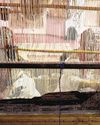
AGE-OLD CRAFT OF WEAVING CARPETS AT RISK
In southern Morocco, women are the guardians of the age-old craft of carpet weaving, an intricate art form that often leaves them with meagre earnings.
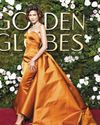
Zendaya and Tom Holland engaged, says US media
Spider-Man co-stars Zendaya and Tom Holland are engaged, American media reported on Jan 6, the day after she was spotted wearing a huge diamond ring.

Johnny Depp alerts fans to online scammers posing as him
Hollywood actor Johnny Depp has alerted his fans to online scammers impersonating him.
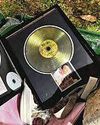
Singapore composer George Leong calls Dick Lee 'self-centred' amid emotional rant about music scene
Singaporean composer and musician George Leong has worked on some of the biggest hits of Mandopop and Cantopop, but in an impassioned Facebook post, the 54-year-old seemed to have thrown it all away.
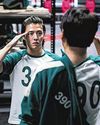
Squid Game 2 Met With Backlash Over Vietnam War Reference
Squid Game 2, a dystopian drama in which hopeless people compete for survival by playing Korean children's games, is facing backlash from Vietnamese audiences over a remark on the Vietnam War (1955 to 1975).
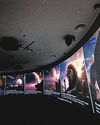
68 S'pore writers sign statement on NLB's 'uncritical endorsement' of generative AI
Members of Singapore's literary community are calling on the National Library Board (NLB) to exercise greater prudence in adopting generative artificial intelligence (AI) or risk \"permanently damaging Singapore's literary landscape\".
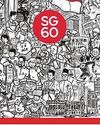
Mediacorp disqualifies stolen designs from competition
Three illustrations submitted to a Mediacorp design competition have been removed from the media company's website and disqualified after they were found to have been stolen.

From bad boy to Better Man
Pop star Robbie Williams reflects on hedonism and healing for biopic
That very hot drink could be doing you harm
Drinking very hot beverages is a proven risk factor for oesophageal cancer
STRENGTH BAND-AID
Research suggests that resistance bands are as effective as weights at building strength